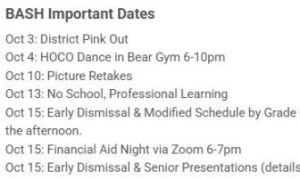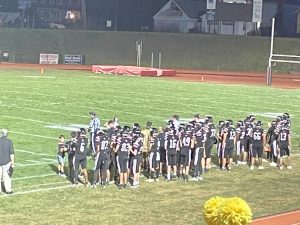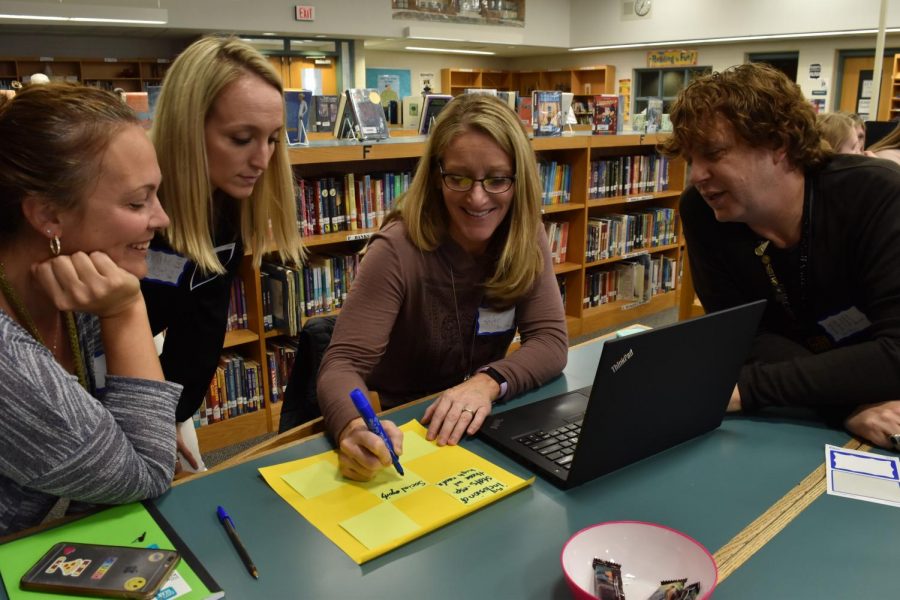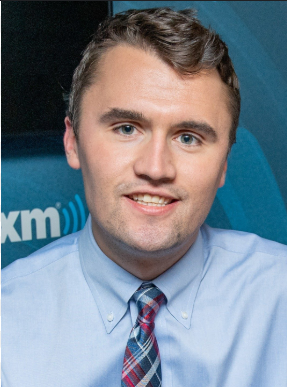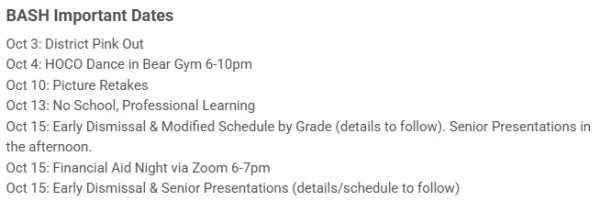Columbus Day In-Service Introduces Beneficial Framework
Bill Cherkasky, Victoria Hayes
Teachers spent the in-service day attending previously signed-up-for sessions, meant to educate them in several topics that affect students and teachers.
On Monday, while students lounged at home for Columbus Day, teachers participated in one of four mandatory district-wide in-service days for this school year.
Teacher in-service days, which are contracted to teachers each year, aim to continue teacher education so that they may stay up-to-date with programs, teaching methods, and knowledge. The subject of in-service days are dependent on administration.
This in-service day, teachers were offered sessions to sign up for, with limited space at each session. A variety of topics were offered, from self-care to equity. A full list of sessions offered is shown at the end of the article.
TV teacher Mr. Cherkasky, who attended a session on “Equity in Our School Community,” feels that in-service days are very effective and beneficial to teachers. The session discussed students being treated equally and fairly in school.
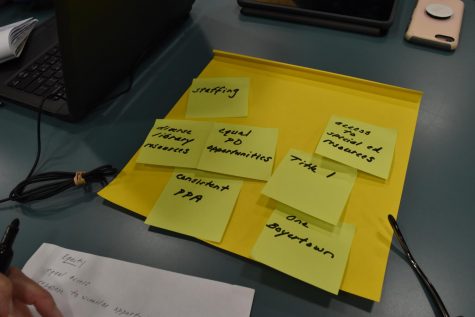
Within the sessions, teachers performed activities to more fully grasp the concepts.
“Some students need more than others,” Mr. Cherkasky said. “I learned about micro-aggressions. They’re phrases students or teachers say without realizing it might offend someone.”
Phrases such as, “oh, you speak English very well,” or, “you throw like a girl,” create assumptions about the person and imply inferiority, even when the person speaking doesn’t realize it.
“You might not be personally trying to insult them or make them feel singled-out, but you are just because of what you’re saying,” Mr. Cherkasky said. “And we did activities on that, trying to identify them and figuring out how they’re offensive.”
While the afternoon was spent in these signed-up sessions, the morning of the in-service day was spent with departments meeting together. However, some teachers wish there was more time to collaborate.
“We don’t get a lot of time,” English teacher Mr. Repko said. “Either you have to make tests or questions, or check if they line up with standards. We don’t get to talk about how our classes are going, what works, and what doesn’t.”
The session Mr. Repko attended, “Social Emotional Learning in Self,” on the other hand, was the “half that was productive.”
“It’s really looking out for the well-being of the entire person, not just the academic part,” Mr. Repko said. “It’s a good approach, and it’s sorely needed, especially with so much stress involved with so many things anymore. It’s affecting teenagers, and trickling down to the elementary school kids.”
Mr. Repko is a “champion”—one of the high school members who will be responsible for bringing Social Emotional Learning framework to the high school and implementing it. To do this, first the concept has to be introduced to the faculty, who will have to work it into their own lives in order to eventually work it into their field of study and classes.
This can be detrimental, however.
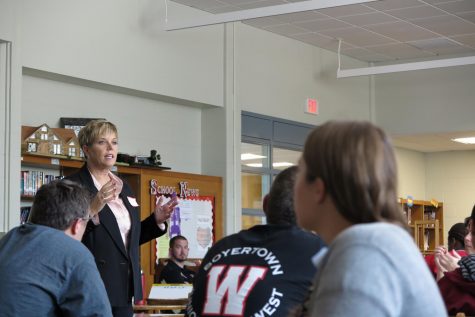
Educators spent the afternoon of the in-service learning from other educators key topics that affect schools; many of these sessions introduced concepts that will later be introduced to the high school and implemented by teachers.
“Social Emotional Learning is a lot of personal stuff, such as how your personal well-being may affect your ability to teach,” Mr. Repko said. “The hard part is it’s another layer of care that a teacher has to deal with, which can affect them—especially if you’re not in tune with that sort of thing.”
Some in-service days are focused on teaching educators how to use new programs. With the shift to Smart Futures, new grade book Infinite Campus, and the new testing performance tracker, administrators attempted to show teachers how to use them.
However, showing educators how to use new programs isn’t always seamless.
“Sometimes, they haven’t used it enough themselves,” Mr. Cherkasky said. “That can be an issue. They should hold off on rolling it out if they aren’t too familiar.”
Some teachers would appreciate more custom-tailored sessions at the in-services.
“I didn’t mind what I ended up with,” Mr. Cherkasky said, “but I wish there were more choices for staff.”
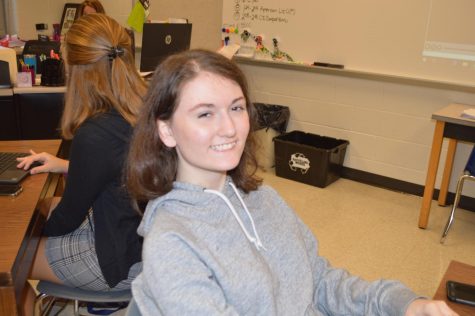
Jocelyn is a graduate of BASH. She served three years in the CUB and she previously wrote for the East Observer. She was in many clubs, such as SADD, Stage...





